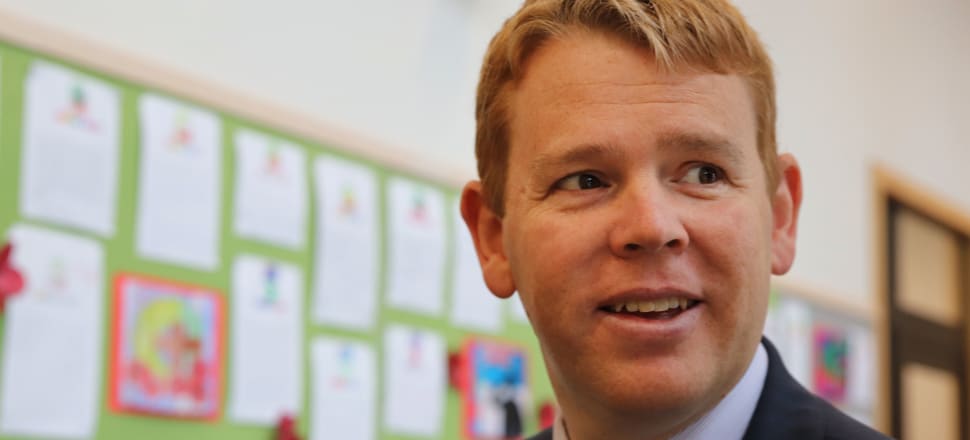
Despite ministerial promises of a "much more ambitious" approach to open government, civil society groups say the latest strategy produced by officials is a major letdown and have called into question the Government's commitment to the process
The Government’s claims to greater openness and transparency have yet again been called into question, with New Zealand’s latest open government plan containing proposals “so weak as to be a joke” according to some.
Civil society groups have lashed officials’ and politicians' failure to properly include their voice and produce an ambitious document, questioning whether it is worth their time to take part.
New Zealand’s fourth action plan for the Open Government Partnership, an international initiative to promote openness and transparency, has been under development for several years.
READ MORE: * Open government is 'fundamental to democracy' - so pressure to get it right * Ministers lag behind own proactive release standards
Last year, 10 organisations urged Public Service Minister Chris Hipkins to delay the plan’s completion by a year so the Government could provide dedicated funding for the initiatives and give communities a greater degree of involvement.
“Without a change to the process ... we have serious concerns about the value of engaging with the work to develop the plan, and believe that – counter to its intentions – Open Government Partnership work in New Zealand will continue to feed cynicism about ‘co-creation’,” the groups said in a joint letter to a minister.
Hipkins has previously expressed his desire to have a "much more ambitious plan" - yet while the timeline was extended in response to the request, the groups remain unhappy with a lack of ambition in the final draft.
New Zealand Council for Civil Liberties deputy chairman Andrew Ecclestone said most of the commitments were either pre-existing programmes or work that had already been planned, such as the development of a community engagement tool and a national counter-fraud strategy.
Just two of the eight initiatives had come as a result of civil society input, and the final version of one of those - added scrutiny of secrecy clauses in legislation which overrode the provisions of the Official Information Act - was “so weak as to be a joke”.
While Hipkins had previously expressed surprise at how widespread such secrecy clauses had become, ministers had rejected a formal review of existing clauses in law, merely asking the Ministry of Justice to review its guidance to officials.
“This commitment, from a government whose former Minister for Open Government promised it would be ‘the most open and transparent government ever’ is pathetic,” Ecclestone said.
“In NCEA terms, the ambition goal gets an N - not achieved.” - Julie Haggie, Transparency International
The Government had also rebuffed calls to consider signing up to the United Nations’ Aarhus Convention, which places obligations on states regarding access to information and access to justice for environmental matters.
The failure to follow through on promises of improvement had become a hallmark of New Zealand’s work as part of the Open Government Partnership, Ecclestone said, likening it to “a person who pays for their gym membership, but then wonders why their fitness doesn’t improve when they don’t actually do any exercise at the gym”.
Civil society groups would need to consider whether it was worth engaging with the process, he added, given continually poor outcomes and the amount of effort required for organisations with limited resources.
Transparency International NZ chief executive Julie Haggie told Newsroom the organisation was pleased by the Government’s commitment to strengthen the range of ways in which Kiwis could access public services and guard against ‘digital exclusion’.
However, Haggie said there was significant disappointment with the lack of ambition within the rest of the plan.
“In NCEA terms, the ambition goal gets an N - not achieved.”
A huge effort from civil society groups, as well as the Public Service Commission, seemed to have been stymied by a lack of willpower and understanding across the wider government as to the value of such work.
“This was an uphill slog and most of our expertise and energy has been expended without purpose, as agencies stepped back,” Haggie said.
Hipkins: Full agreement 'not always possible'
Amnesty International NZ campaigns manager Lisa Woods told Newsroom the Open Government Partnership rules were clear on the need for co-creation, but officials and ministers had fallen well short of that requirement.
It's not just going out and consulting with the public, and the Government going away and developing a plan from a top down process, but actually thinking about how we can create a space right at the very beginning.”
Amnesty had stepped back from involvement in the process due to internal capacity issues, Woods said, in a reminder of the strain that some civil society groups faced.
Hipkins told Newsroom he disagreed with suggestions the action plan was insufficiently ambitious and reliant on pre-planned work, saying the commitments were directly related to issues raised during public consultation.
The Government already had a number of legal instruments with similar effects as the Aarhus Convention, while a retrospective review of secrecy clauses “could be resource intensive and may not necessarily result in significant change”.
Asked whether he was concerned about civil society groups losing faith in the open government process, Hipkins said: “Co-creation is a process that involves multiple stakeholders, and it is not always possible to have full agreement on all issues. I fully expect civil society groups to continue to challenge us to strive for better and I welcome that.”
A round of public consultation on the draft plan is running until December 9.







